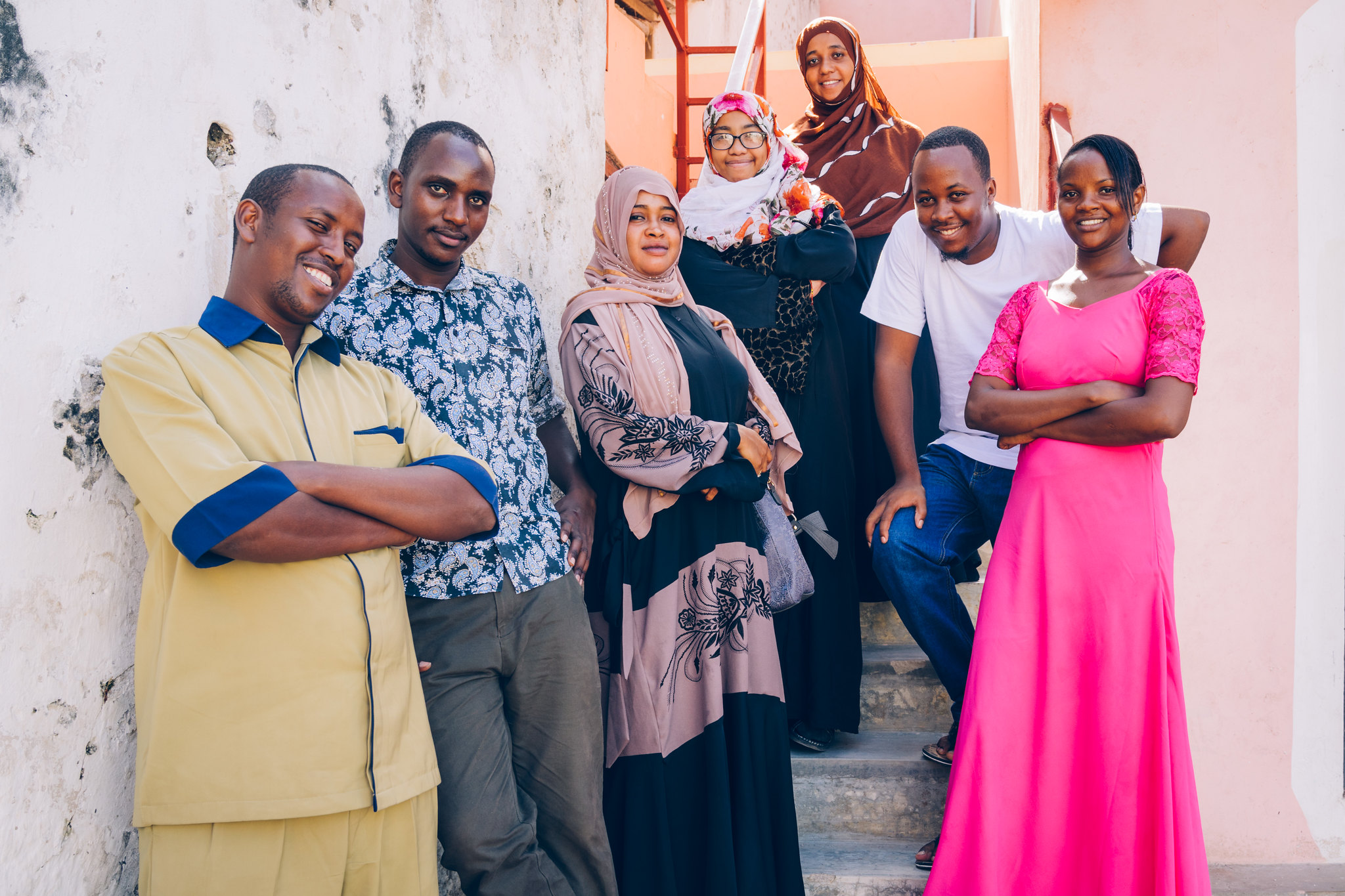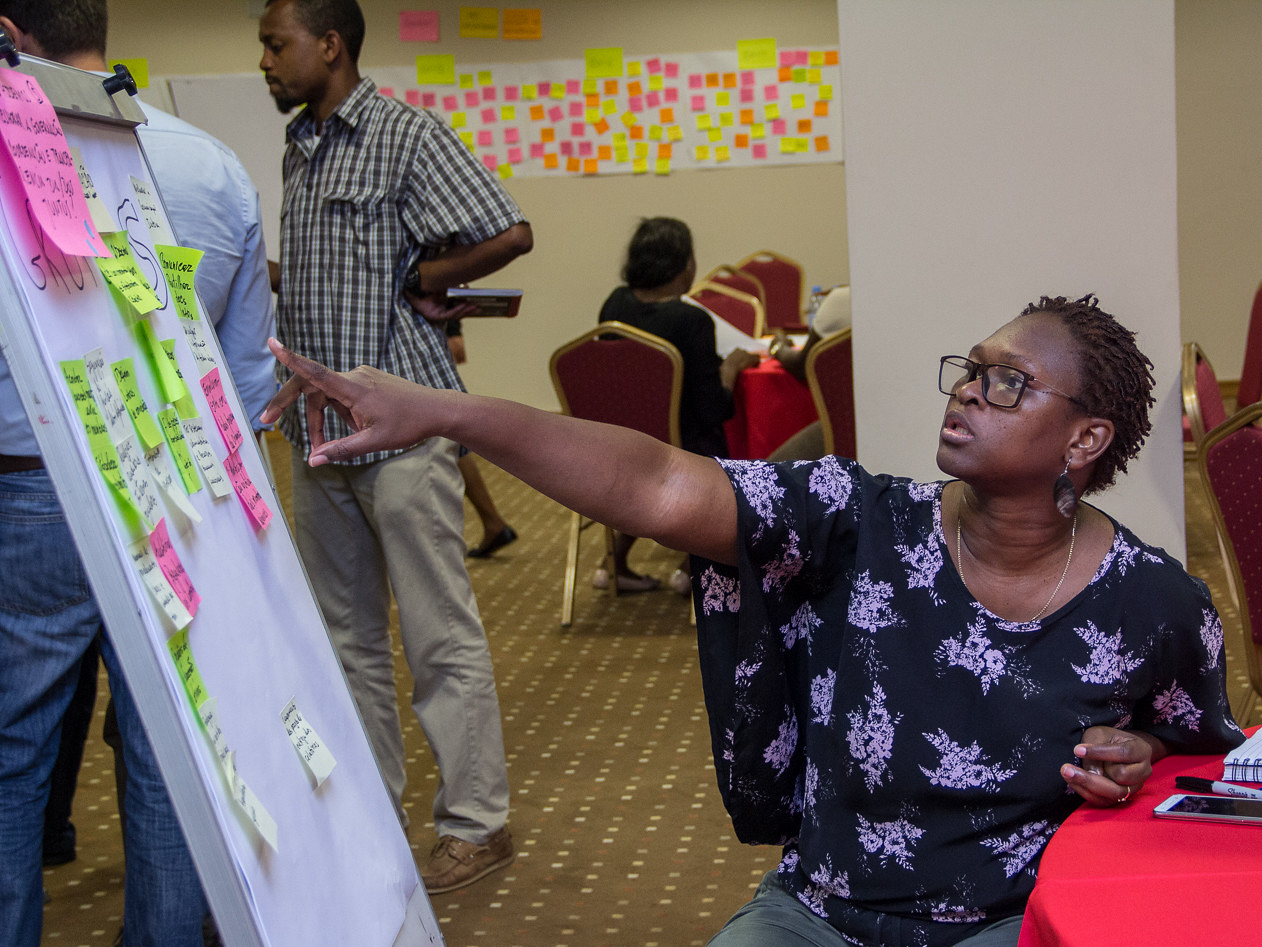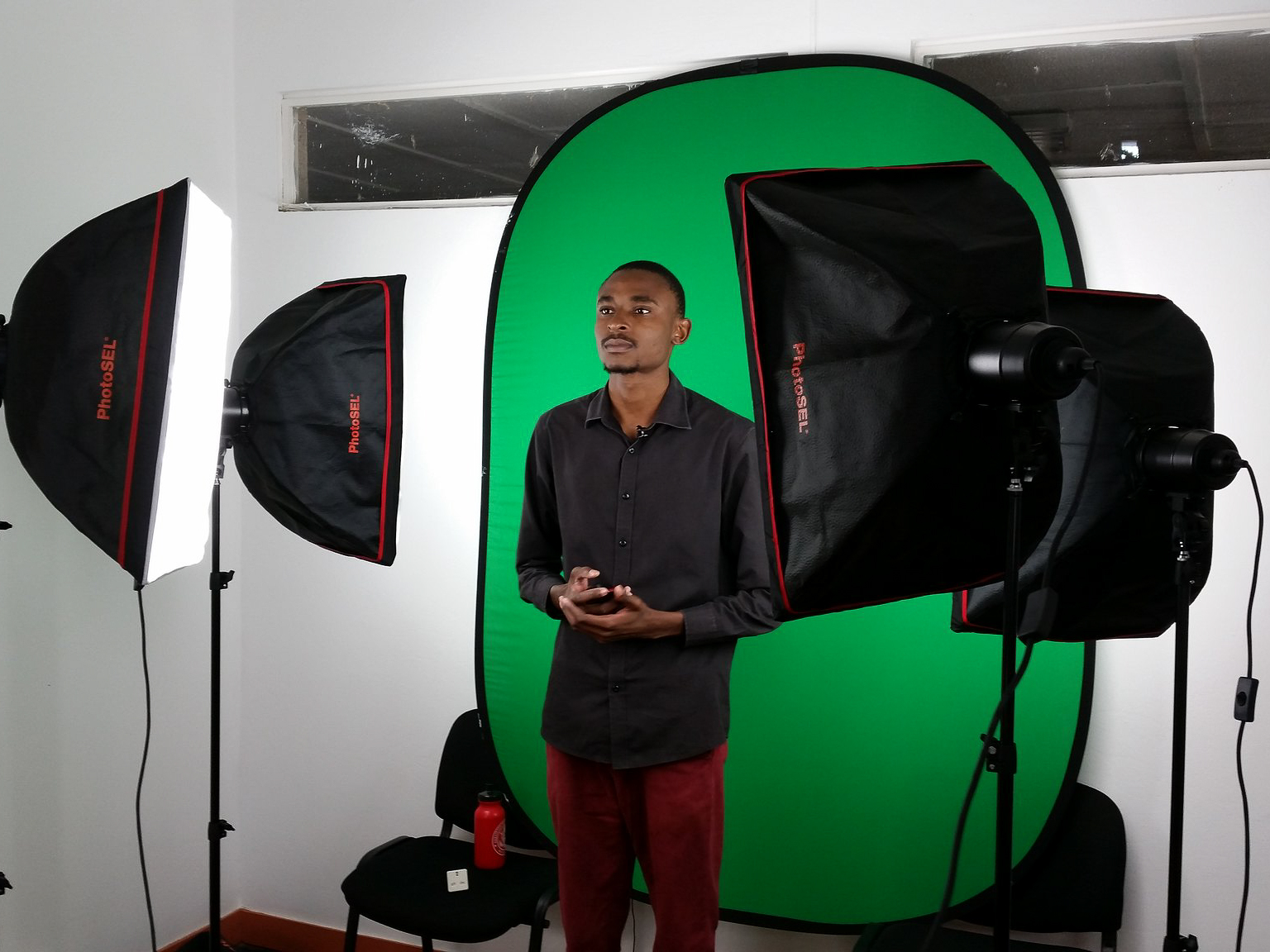In collaboration with nine European Diversity Charters, the AKF team in Portugal has developed a Diversity and Inclusion (D&I) course to promote diversity and equal opportunities in the workplace. The European Diversity Charters help public and private sector organisations across the European Union (EU) design and implement effective D&I policies; AKF’s course has become a vital resource to support this process. Since July 2021, more than 13,000 people, from over 150 organisations across 10 countries have taken the online course, with around one hundred more people participating in face-to-face training.
We know from our experience of working with communities all over the world, that diversity and inclusion are essential for well-functioning societies. Moreover, we recognise that a society which sees strength in difference has the potential to be even more prosperous, as His Highness the Aga Khan once said, “Genuine pluralism understands that diversity does not weaken a society, it strengthens it.”
“Genuine pluralism understands that diversity does not weaken a society, it strengthens it.”
His Highness the Aga Khan
This ethos lies at the heart of everything we do. Whether working with remote mountain communities in Central Asia, with young people in East Africa’s bustling urban centres, or with state leaders and global decision makers, we aim to make every voice heard. However, like many other organisations around the world, ensuring diversity and inclusion within our own teams and workplaces is an ongoing journey. This – as well as a lack of D&I related content adapted to the European context – is what inspired our team in Portugal to develop the course.

The journey began in 2019. AKF Portugal, the Estonian Human Rights Center and Equality Strategies (Ireland), together with partners from seven other European countries (Slovenia, Slovakia, Czech Republic, Poland, Romania, Croatia and Spain), launched a pilot project to collect, develop and test a set of tools to foster the implementation of D&I among European employers and bolster the European Diversity Charters. The AKF-led project – known as Diversity@Work – was an invaluable opportunity for us to share our knowledge and experiences, whilst learning from others with similar values to ours. Together, we defined D&I in the following way (although definitions can vary depending on the context): “Diversity includes differences in age, sex, ethnicity, ability (physical and mental), sexual orientation and religion. And inclusion means our will, ability and competence to understand, value and maximise all facets of diversity.” Or, in fewer words, and as a member of one the participating organisations describes it, “To include means to promote and recognise the inherent potential of all human beings in their greatest expression: difference.”
“To include means to promote and recognise the inherent potential of all human beings in their greatest expression: difference.”
Paula Lobinho, D&I Lead at El Corte Inglés, Portugal
The 26 European Diversity Charters work with around 15,000 organisations across the continent. “The signing of the Diversity Charter is a first step towards making a commitment to diversity and inclusion in the workplace,” explains Sonia Rio Freije of Fundacion Diversidad in Spain, one of our partners in the Diversity@Work project. Once an organisation has signed a charter, providing learning opportunities for leadership and staff is one important aspect of their formalised commitment to D&I.
True to its name, the training course was developed in a collaborative and participatory manner, involving more than 300 people from 180 organisations in 10 countries. All the developing partners were able to test the course in their local context, ensuring it was relevant and adaptable.
Like the training courses we’ve been developing for many years with communities across the globe, Diversity and Inclusion is a blended learning course, incorporating both online and in-person modules. However, it can be taken entirely online if required. It is currently available in seven languages: Croatian, English, Estonian, Polish, Portuguese, Russian and Spanish.
Helen Talalaev of the Estonian Human Rights Center explains the key outcomes of the course, “The training course helps to understand the processes behind discrimination and build awareness about stereotypes, prejudice, unconscious bias and micro messages. And then goes further to figure out what needs to be changed in each particular organisation to make actual change.”


The organisations that have taken the course span sectors, sizes and geographies, and include names like El Corte Inglés, Portuguese Employment Services, IKEA, Mercadona, Lidl and many more. Claudia Pedra of Stone Soup Consulting (one of the participating organisations) told us, “[Our] basic principles are respect for human rights. The course teaches us how to make this effective on a day-to-day [basis] for the benefit of our people and the company.”
Others note that the course has provided an opportunity to reflect on their existing D&I policies and enact tangible changes, such as making recruitment processes more inclusive. Most importantly, the course has enabled organisations to recognise the power of diversity and draw upon it to strengthen their organisational cultures. As one participant shares, “Living with diversity creates opportunities for dialogue, learning and personal and social development, essential for relating to others. By having contact with totally different individuals, [we can] develop greater empathy, listening, flexibility and understanding,” Alexandrina Cerqueira (Vila Verde Municipality, Portugal).
“Living with diversity creates opportunities for dialogue, learning and personal and social development, essential for relating to others. By having contact with totally different individuals, [we can] develop greater empathy, listening, flexibility and understanding.”
Alexandrina Cerqueira, Vila Verde Municipality, Portugal
Whilst delivering training to employees is a great start, it is only part of the process; we strongly encourage organisations to use the course to drive broader D&I action plans and strategies. The Portuguese Employment Services, for example, have begun to establish a D&I action plan based on the results of the training sessions, where employees at all levels are asked to reflect and make suggestions towards a more inclusive organisation.
Since the pilot project concluded in 2021, the initiative has taken on a life of its own. More than 13,000 people have enrolled on the online version of the course, which is available on the AKF Learning Hub. AKF continues to play an instrumental role in delivering the face-to-face components of the course, as well as designing and facilitating train-the-trainer sessions so that others can learn to teach the course themselves. In Portugal, there is a lively Community of Practice established by AKF, consisting of organisations participating in and facilitating the course. All of the Diversity Charters involved actively promote the course to their signatories, with Estonia, Poland, Spain and Portugal seeing the highest number of course enrolments.
Looking ahead, AKF plans to take the course to new heights by making it more inclusive. We are working to translate the course into Dari to assist Afghan refugees who have migrated to Europe (and are open to translating into other languages), as well as developing an audio description for people with visual impairments. We will continue to adapt the course as concepts and understandings of D&I evolve, and grow our community of facilitators to scale up its reach. Finally, inspired by the partnerships and participating organisations we’ve collaborated with throughout this process, we are even more committed to embracing diversity and nurturing inclusion within our own organisation.
For those looking to embark on their own D&I journey, here are some words of advice from a few of the course participants:
“Even if you think you are already a diverse and inclusive organisation, your staff may not agree, and there are always things to learn!”
Ana Sofia Silva, Instituto de Informatica, Portugal
“A diverse and inclusive team is the key to your success – raise everybody’s awareness and do it consistently.”
Evelin Bachmann, Manpower, Estonia
“Start: Don’t expect everything to be ready to start. It’s better to take small steps than not to take them at all!”
Ana Martinho, A3S and P.PORTO – Polytechnic of Porto, Portugal
AKF Portugal, in partnership with Stone Soup Consulting, is available to deliver additional training services to any organisations that feel they would benefit from our D&I course. Contact us for more information at: carla.calado@akdn.org
Learn more about the EU Diversity Charters and the D&I course in this short video:


This project was funded by the European Commission Rights, Equality and Citizenship Programme (REC) and implemented by the Aga Khan Foundation. Views and opinions expressed are however those of the author(s) only and do not necessarily reflect those of the European Union. Neither the European Union nor the granting authority can be held responsible for them.




